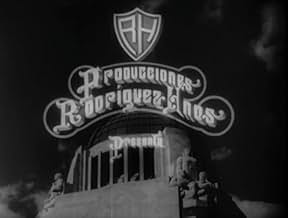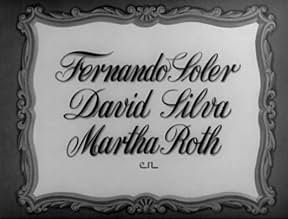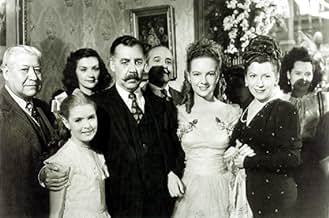The patriarch of the Cataño family attempts to force his version of propriety and order on his middle-class urban Mexican family. However, things begin to unravel throughout the movie.
I am not sure how historically accurate this movie is in terms of the typical cultural milieu of Mexican families in the middle of the 20th century. The plot involving an excessively strict father, servants, and marriages to cousin seems like it would not be out of place in 19th or 18th century Europe. I get the impression that the work may be based on something else, but I can't identify it. Anyway, this is significant because the family seems a bit extraordinary, but the title, "Just Another Family," may at first seem misplaced.
However, upon closer inspection, the story is, except for a few references to current economic events and the dated plot device of a door-to-door salesman, more or less timeless and universal. In short, the power of a patriarch is insufficient to repress the budding sexuality of his children, and this leads to a breakdown and restructuring of the previously tight family structure.
At first it seems to be a feminist critique of patriarchy, because the daughters get the brunt of the father's ire. However, the behavior of the family's eldest son is also brought into question later in the film. At that point, one might see it as a story about orderly society's inability to suppress human sexuality in general (without regard to gender). However, the last few lines of the movie generalize all of this - it turns out human sexuality was just a vehicle for delivering a broader message.
That message is that human nature in general is difficult to control or suppress and yearns for freedom. In pursuit of this freedom, it will eventually burst through cracks in the pavement of order and hierarchy if it finds even a small nook by which to do so.
As this dynamic of order against unruly human nature exists at every level of modern society, by the end of the movie, I found the title to be apt: this is just another story that could happen in any family, in any society, in any human interaction.
Simple but always relevant, Best Picture award for 1949 well-deserved.































